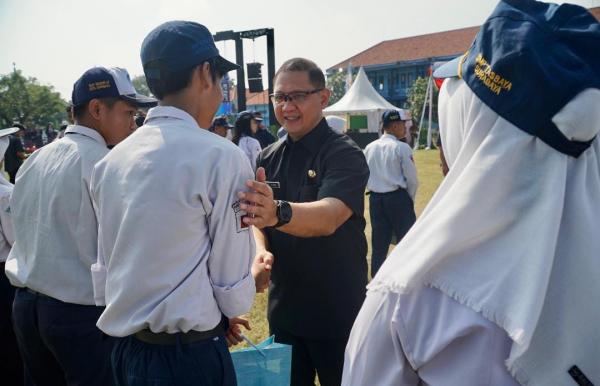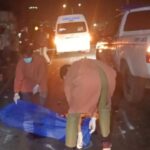SURABAYA – The issue of alleged illegal levies (pungli) in several state schools in East Java is being widely discussed. In response, an official clarification was quickly provided.
The Head of the East Java Education Department stated that there are no illegal levies in all state high schools, vocational high schools, and special needs schools under the authority of the East Java Provincial Government.
“We confirm, there are no illegal levies in state schools,” was stated in a press release in Surabaya.
According to the statement, all funding for state school activities in East Java is regulated in the School Activity and Budget Plan (RKAS) document. The preparation of the RKAS is carried out openly with the school committee, prioritizing the principles of deliberation, transparency, and accountability.
Schools also receive funds from various sources, such as: BOS Funds (School Operational Assistance), BPOPP Funds (Provincial Education Operational Implementation Assistance), Voluntary contributions from the community. However, the intended community participation is not mandatory or forced.
“If BOS and BPOPP funds are not sufficient, the community may participate. But that is a voluntary contribution, the result of a meeting with the committee, not an illegal levy,” it was said.
The East Java Education Department also dismissed the issue of withholding diplomas. According to the statement, for the 2024 and 2025 graduates, all diplomas have been distributed. In fact, schools actively contact students or come directly to their homes if the diploma has not been picked up.
“All diplomas can be picked up without any conditions. They can even be printed independently because they are already digitally connected,” it was added.
The only obstacle is in specific cases, such as name spelling errors that must be corrected by the central office, or alumni who have moved residences and are difficult to contact.
It is important to know that the process must be done by the student in question because it is mandatory to include a thumbprint—so it cannot be done by proxy.
The Governor of East Java also gave serious attention to the management of school budgets.
“We want to ensure that the management of education funds is truly used to improve the quality of human resources,” the Governor stated.
According to the Governor, the education budget is not only for state schools but is also allocated to more than 4,000 private schools in East Java.
Despite the illegal levy issue, the education sector in East Java continues to record proud achievements. For six consecutive years, East Java has been the province with the largest number of students passing the National Selection Based on Achievement (SNBP) and the National Selection Based on Test (SNBT) to enter state universities.
East Java also maintains the title of overall champion of the Vocational Student Competency Competition (LKS) for three consecutive years. “We want to realize the Golden Generation of 2045. Education is the key,” the Governor emphasized.
The East Java Education Department, together with branch offices and school supervisors, continues to carry out intensive supervision. If violations are found, firm action will be taken.
“We invite the public to also supervise and report any practices that do not comply with the rules. Let us keep the world of education clean and with integrity,” the statement concluded.


